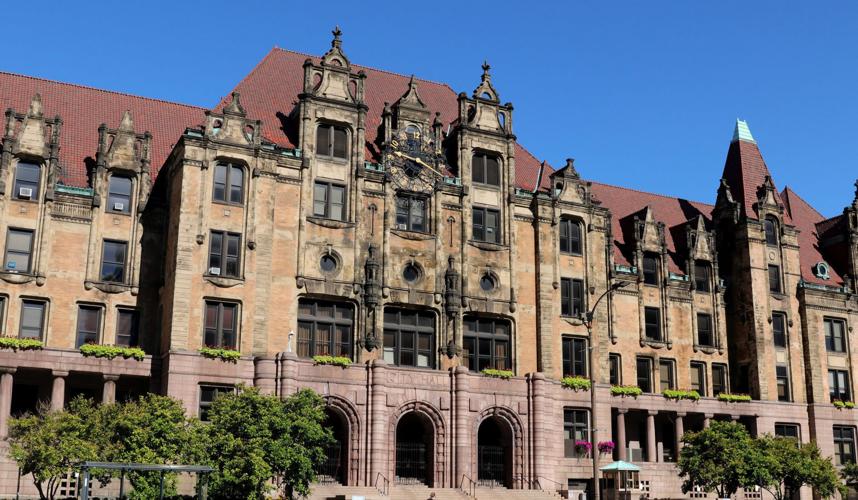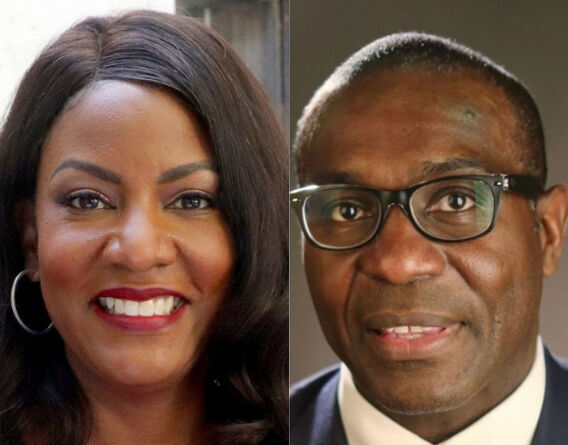
City Hall on July 12, 2020. Photo by Hillary Levin, hlevin@post-dispatch.com
ST. LOUIS ÔÇö Almost six months after a much-debated $135.3 million plan to allocate federal pandemic aid was signed into law, ├█Ð┐┤½├¢ city agencies have yet to spend most of it.
A report submitted Tuesday to an aldermanic panel by Mayor Tishaura O. JonesÔÇÖ office showed that only about $3.4 million of the total had been paid out by Jan. 31.
The disclosure spurred criticism from Aldermanic President Lewis Reed, saying itÔÇÖs disappointing that only 2% of the money ÔÇ£has been put to work to bring much needed relief to the people of ├█Ð┐┤½├¢.ÔÇØ Time is of the essence, he added.
Nick Dunne, a spokesman for Jones, said the spending has taken this long because the city must follow its own procurement process, federal rules and requirements outlined by the Board of Aldermen for some programs when it passed the bill.
People are also reading…
ÔÇ£The city is moving as quickly as possible,ÔÇØ he said.

Mayor Tishaura Jones and Aldermanic President Lewis Reed.
Referring to some programs already started, he said, ÔÇ£WeÔÇÖve already moved millions of dollars to ├█Ð┐┤½├¢ families. WeÔÇÖve boosted our (COVID) vaccination rates. WeÔÇÖve been able to stand up programs to support our youth.ÔÇØ
While the report listed only limited spending so far, an item-by-item breakdown included did show activity has occurred on most of the planned allocations. Agencies said they are working to award contracts and taking other steps to eventually carry out the programs involved.
Among the largest outlays so far has been for the $500 direct cash payments that Jones pushed hard for last year during the boardÔÇÖs deliberations on the plan.
As of the reportÔÇÖs Jan. 31 cutoff date, $925,000 had been spent on the cash aid program. Officials added at an online Tuesday hearing that the figure has grown since then.

The Housing, Urban Development and Zoning Committee of the ├█Ð┐┤½├¢ Board of Aldermen met via videoconference on Tuesday, Feb. 8, 2022. (screenshot)
City Treasurer Adam Layne, one of several officials who took part in the Housing, Urban Development and Zoning Committee session, said more than $1.5 million has now been distributed in the program.
By Sunday, officials said, 3,818 applications for the $500 payments had been processed. In the next week and a half, Layne said, ÔÇ£we will be nearing the 5,000 threshold.ÔÇØ
About $950,000 has been spent so far on efforts to increase the cityÔÇÖs COVID-19 vaccination rate, including $105,000 on canvassing and other community outreach, $78,000 on mobile clinics and nearly $727,000 on gift cards to provide an incentive to get coronavirus shots.
The city has handed out 2,065 $100 gift cards at vaccination clinics run by the city Health Department and 3,303 through federally qualified health centers. The board allocated $1.25 million for the gift card program.
The $135 million is the first allocation of money the city is receiving from the American Rescue Plan Act approved by Congress last year.
Aldermen voted to spend $168 million but Jones vetoed $33 million she contended violated federal rules; that amount has yet to be reallocated.
Reed issued his statement late Tuesday afternoon, a few hours after the committee meeting.
Police OT
Meanwhile, Jones aide Nahuel Fefer told the aldermanic panel that the police department doesnÔÇÖt anticipate using during the current fiscal year any of the $5 million for overtime pay for officers included in the spending plan.
Aldermen had added that money, essentially restoring $4 million in police allocations cut at JonesÔÇÖ request from the regular city budget for the fiscal year, which ends June 30.
Fefer said the city has until 2026 to spend any ARPA money but also suggested that the city may need to reappropriate it. He said there are needs for OT pay in other parts of city government but didnÔÇÖt elaborate.
Aid for homeless
TuesdayÔÇÖs report also said the city had spent about $392,000 and obligated about $7.8 million for emergency shelter for the homeless.
Human Services Director Yusef Scoggin said that included 125 ÔÇ£overflow bedsÔÇØ at five locations.
Some advocates for the homeless with private agencies have said thatÔÇÖs not enough to handle the total number of homeless people in periods of extreme cold weather who typically wonÔÇÖt go to shelters.
The city is still working to finalize contracts for millions more in other new homeless services.
Originally posted at 6:58 p.m. Tuesday, Feb. 8.











